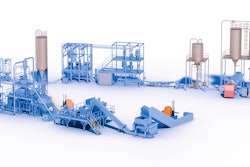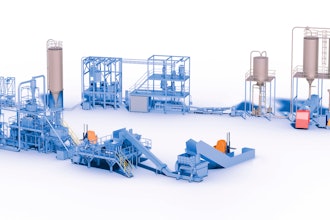
Amid ongoing innovation and disruption in tech, customer preferences in manufacturing are not as straightforward as they once were. Advanced technology has unlocked new avenues for production and distribution, but it can also make integration more intricate and laborious.
Today’s manufacturing buyers will likely expect both advanced technology and thorough guidance on how to wield it.
The channel, which has long been central to manufacturing sales, plays a major role in overall customer experience (CX). Tech-induced disruptions present challenges and opportunities for manufacturers and channel partners alike. To be successful, channel strategies must also keep up with the rapidly changing industry landscape.
As they evolve their businesses and offerings to meet customer needs, manufacturers and their channel partners including distributors, system integrators and agency representatives must clearly delineate and differentiate their value proposition.
Building and nurturing a robust CX strategy is not just beneficial for customer relations—it’s good for the bottom line. Recent research from Alexander Group found that manufacturers who lead in CX achieve +9pts in EBIDTA margins compared to the rest of the market.
Let’s explore strategies for manufacturing success that consider these ever-evolving customer needs and highlight how businesses and partners can meet them.
Digital is a key growth strategy, and CX will amplify its impact
Today, e-commerce and digital engagement are increasingly perceived as table-stakes in customer outreach. Buyers expect easy-to-use omnichannel platforms to research their options, review use cases and place and monitor their orders. They also expect to receive personalized guidance and recommendations when they use these digital channels.
Tools like ERPs and CRMs can help manufacturing salespeople address buyer needs before and after the point of sale by offering a single source of truth for all prospect and customer information and supporting individualized touchpoints.
By using digital platforms to support the entire customer journey, manufacturers can differentiate themselves in the market and emerge as CX leaders. To capture an even greater market share and demonstrate their ability to meet (and exceed) customer needs, manufacturers should extend the scope of their services to include offerings like virtual sales and customer success.
New investments add value to CX
Manufacturers can add more value to the customer journey by investing in new engagement tools like demand generation and virtual selling. Demand generation occurs at the top of the sales funnel and delivers personalized recommendations to website visitors based on their browsing history, chat inquiries, downloaded assets and more.
Demand generation-infused strategies help ensure that potential customers receive only resonant content and engagement. This individualization serves as one of the earliest touchpoints of customer experience, where it can make a world of difference.
With virtual selling, salespeople meet potential customers where they are—which, today, is often online or in digital channels. Manufacturing buyers have packed schedules and often don’t have time for a formal, hour-long sales meeting. Rather, their research is frequently conducted in short bursts via digital channels like websites.
Manufacturers can accommodate tight schedules by offering digital-first engagement like live chat and email. By unlocking both synchronous and asynchronous engagement, manufacturing sellers pave the way for a customer-centric experience.
Customer success plays a critical role in CX
Customer success plays a significant role in overall customer experience. The way manufacturers and channel partners support customers after the point of sale carries tremendous influence and can shape brand perception and relationships.
Manufacturers must either create, offer and regularly update resources themselves to help users take full advantage of their products—or invest in training and education so channel partners can facilitate ongoing support on their behalf.
The right channel partners will be receptive to this guidance and will ask thorough questions to make sure they can represent manufacturers to the best of their abilities. Manufacturers who work with channel partners should set clear strategic guidelines and expectations to ensure their end-users receive the desired degree of support.
Regardless of who manages customer success, the resources available should anticipate customer needs, highlight both basic and advanced use-cases and showcase other offerings for cross-sell opportunities. With today’s advanced technology offerings, troubleshooting and live support will also be crucial for customer success.
Good CX is good business
To achieve CX success, manufacturers must align their goals closely with the buyer journey—a process grounded in a thorough understanding of prospects’ needs and challenges.
Many manufacturing buyers today are keen to reap the benefits of advanced technology and they need personalized guidance to help inform their decisions. Digital tools like ERPs and CRMs can help salespeople share the right information at the right time.
Easy-to-use digital platforms featuring live and asynchronous engagement ensure that customers and prospects connect with salespeople on their own schedules. Customer success initiatives extend manufacturers’ ability to add value to overall customer experience.
With a thoughtful CX practice that anticipates modern customer needs, manufacturers can capture greater market share and differentiate themselves in a competitive market.























